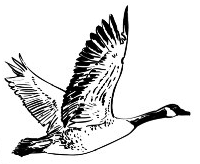Music as a resource for feral explorers
Posted by Henry
- “Music is the art form closest to faith, because unlike literature or painting, it does not take its substance from the known world. It comes - melody, harmony, rhythm - from the beyond. But it takes on flesh when, played or sung in our presence, it becomes allied to a particular place, time and company. It is not a consumerist commodity. It is a treasure buried in a field which when cherished can be an intimation of heaven.” John Bell
- “In jazz, anybody can sit in. It's dogma-free, which allows the music to take more than its share of detours. This forces you to have faith. Faith that if you keep moving forward, you'll get there.” Colleen Shaddox
- “Many of the earliest composers that I have included, like Hildegard of Bingen or Pérotin, almost certainly composed their music ‘to the glory of God’. I obviously can’t be certain, but I believe those remarkably gifted eleventh-century humans were also trying to encapsulate and express their sense of wonder about just being here–which, by a process of extraordinary alchemy, gets transmuted, goes into the sound and the physical vibrations of their music and travels across time to markedly different cultures with markedly different belief systems (or none). So, for example, J S Bach, a very devout Lutheran who died many hundreds of years ago, is only ‘J S Bach’, the immortal legend, because his music contains something ineffable that resonates in other people, who then lovingly resurrect his music every moment of every day on every continent. And the more I think about this endless continuum of human beings sharing, exchanging, depending upon music and each other, the more awed I am. In this way, music is like a living laboratory–a never-ending stream of mutual endeavour that gets recorded and re-created by performers and audiences who interpret it for their individual sensibilities, proclivities and particular moments in time. When music ‘means’ something to us, whoever we are, we often bypass any intellectual questions and go directly to a physiological and emotional response. You know how it goes: sudden goosebumps; an involuntary tingle-factor; a feeling of the hair rising on the back of your neck. Something in that particular song or piece or performance has connected with you and your own set of experiences and thoughts, beliefs, traumas, tragedies, disappointments, secrets, regrets, joys. Almost before we are even aware of it, something has connected.” Clemency Burton Hill
Clemency Burton Hill’s book ‘A Year of Wonder’ has become a valued spiritual resource for me. I bought a copy several years ago. I use it every day. She has subsequently written a second volume ‘Another Year of Wonder’. There’s a piece of ‘classical’ music chosen for every day of the year, with some words of introduction. There’s a playlist available chosen by Clemency, on Spotify and Amazon. Its introduced me to lots of great music, and I’ve created several playlists of my own. One of the wonders of instrumental music is its lack or words, so it can speak to anyone. “It’s the most uniting language we have… engines of empathy [it] allows us to travel without moving into other lives, other ages, other souls.” [Clemency Burton Hill]
Mr Bach makes my heart thankful
Posted by Hugh
Responses to music are, inescapably, personal things. I came across J S Bach by accident, in my teens. The discovery helped me traverse a largely unhappy decade, by discovering hope and some sense of inner freedom. Bach may seem to some as far away from any feral dimension as they could image: precise, controlled and conforming to strict rules. There is some truth in that. But for me it combines those disciplines with a spirit beyond them, a freedom and even a wild beauty within harmonies and structures. I think it set me on a course to discover such 'complementary' dimensions in the various jobs and roles I have held over the subsequent years. It has made survival possible. At many times it has allowed me to thrive.
Two examples of JSB. The first is a marvellous visual representation of the Little Fugue in G Minor, revealing the playful complexity, wild explorations and overall harmony of the piece. The second is of the irrepressible Cum Sancto Spiritu from the Mass in B Minor, bursting with hints of the ferality of an irrepressible Creator. (You can post any responses here).
Posted by Hugh
Responses to music are, inescapably, personal things. I came across J S Bach by accident, in my teens. The discovery helped me traverse a largely unhappy decade, by discovering hope and some sense of inner freedom. Bach may seem to some as far away from any feral dimension as they could image: precise, controlled and conforming to strict rules. There is some truth in that. But for me it combines those disciplines with a spirit beyond them, a freedom and even a wild beauty within harmonies and structures. I think it set me on a course to discover such 'complementary' dimensions in the various jobs and roles I have held over the subsequent years. It has made survival possible. At many times it has allowed me to thrive.
Two examples of JSB. The first is a marvellous visual representation of the Little Fugue in G Minor, revealing the playful complexity, wild explorations and overall harmony of the piece. The second is of the irrepressible Cum Sancto Spiritu from the Mass in B Minor, bursting with hints of the ferality of an irrepressible Creator. (You can post any responses here).
|
|
|
